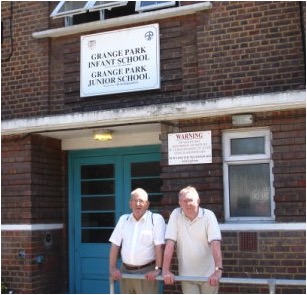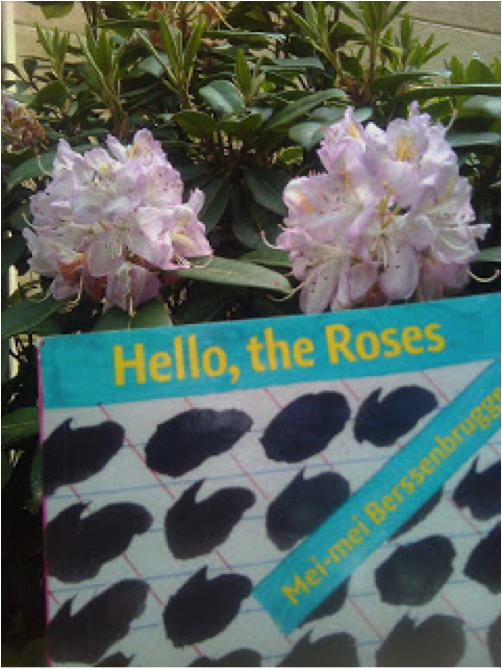Performance Notes: Hayes and Southall, Middlesex, U.K.
(Between 2009 and 2014, I made a succession of visits to the industrial neighborhoods, in West London, that I grew up in and around – a space that might not even be thought of as London-proper by people from other parts of the city or from abroad. I was there to write my book, Ban en Banlieue, but these notes below are taken from my notebook and transcribed here. What is the book before it is a book? Verges, a seam of granite and chalk and leaky gold. At about this time, I began to read Elena Ferrante in translation (in Delhi), recognizing, in her wrecked, peeling and then gentrified Naples, the social and intimate violence, the burning/incomplete loves, something I had known or knew. Only belatedly do I understand the place I am from as European space of another kind. In these performance notes, I also wish to perform: an affinity. A desire. To write a novel of another kind. These are my body-life notes, a mixture of reading and writing at a particular time.)
To delve.
Far below the line of the event.
To delve into a place that “diversified” [J.Calkins] so rapidly that its “history” [J.Calkins] is — inaccessible — by traditional means. So much so. That it’s a “blur” [J.Calkins.]
Is looking traditional? I want a new technology of perceiving.
The roses.
In the back garden.
Poured over with concrete.
And surveilled.
In Hayes.
The alleyway.
I will continue to go home.
How?
Make a plan.
The earth memory is no longer accessible.
How architecture, as a discipline, is “primarily in service of the mega-elites.”
I can’t tell if what I am looking at is a failed housing experiment, or biology: a bulky, rippling niche.
The many different kinds of not having something there could be.
How the alleyway next to the house where I grew up was glotted.
With berries and thorns and nettles and leaves and the tiny white flowers of the prickling bush, where we hid.
Scratches on our arms, faces, stomachs and legs.
We ran through the blackberry bushes in our red and white dresses, from school. Everything in slow motion now. The ribbons drifting out of our hair. To catch on the fence, then the brambles, then the rose-briar itself.
Now gated and with a video camera. And with the garden torn up. And replaced. Poured over. With concrete. For a car.
How do you access the memory of surface materials?
Versus the outer landscape. With its rivulets, labyrinths and hot lakes.
The first wave of immigrants from India and Pakistan and the West Indies has ebbed off, and now who lives in Hayes? Tamil writing on the corner shop’s hood, and when I knock on the door of the house where I lived and sang my poems before I understood they could be written down, the Polish girl who opened the door says, when I tell her this was my home: “So?”
My sentimentality is not your sentimentality.
I walked away.
I walked to the end of the road then turned right, then left.
And here the spot.
I staged then wrote.
For Ban.
Was completely intact.
The small bit of road!
Off Lansbury Drive.
That is the driveway or access.
To Grange Park Junior School.
These men would have been boys in Orwell’s time there.
Who taught English in a local grammar school: “Mellow Lane.”
Where, at 9, I won a Scottish Dancing competition in a dark green kilt with a massive oval pin keeping the flaps of it taut against my thighs, above my knees.
*
The school system is held within the social realm in the way an alleyway is not.
Thus, the school’s entry point — with the asphalt/ivy/brick — was unchanged, thirty years on.
I lay down on the ground.
And above me.
I saw an amazing thing.
I lay down on my coat, a too-large red puffy Patagonia coat I bought from R.E.I. when I knew I would be traveling.
It doesn’t fit me very well but on aeroplanes it is comforting, thin, warm — like a space blanket.
On the street it was a bed-sheet.
I lay down.
My cousin and his two children, and my sister and my mother, were nearby. My cousin had thirty minutes before he had to go to Brick Lane for a meeting, on the other side of London. It was a Sunday; perhaps he drove across London. No, he had to take us back to Kingsbury [Wembley] first.
Because:
To defer.
Is the first act of delve.
To defer the facts.
To see.
A rainbow tilting and glitching — opening up — in the cloud above the street.
We all saw it.
I said, look.
And my family looked up.
And there was the rainbow cloud, a phenomenon of late 2012.
The body is an ear pressed to the ground.
I took the colors in.
The colors of the ivy — multiple greens with the gold and silver veins.
My cousin’s son had made yellow shapes at school from a thick paper and I propped them in the ivy to hold the place of mirrors.
I am not a performance artist.
That feels true.
So much of these practices never make it into writing and are not for writing at all.
They are for or from or for the body.
What the body needs.
In order to complete something.
That “could not be completed at the time.” [P. Levine.]
A politics of sound.
A politics of sensation.
I read Ferrante and felt so moved.
I think of what I am doing as hidden.
As happening nowhere. For nothing. It feels value-less. It feels strange to be always having this experience. All the time. Of the writing. To come. As coming through my body. Always. And how far I go. To what lengths. To stop it. And what it means. To let it come now. Without inhibiting. Without preventing. Without writing it at all.
I read her words and connected.
As I connect to Myung Mi Kim’s Penury.
To this other version of the world.
*
My subject was poverty as much as it was: the feral child.
My son asked me today about my childhood. “Tell me a story from your childhood, mom.” And so I tried to say about the alley.
And the bobbled window of the larder, also still intact, and visible through the metal bars of the alley gate from the street.
Where we sipped Gripe Water as if it was vodka, from a spoon, as little girls. Or tipped a shot into the cap.
When Stephen Whitby, the skinhead who lived next door, locked us in, after chasing us into the house.
From our garden.
The wall was low, crumbling brick with a wooden step.
I began to think of the street.
My sentimentality is not your sentimentality.
So grateful (2012) to have become a poet.
Linked to the Americas now.
Through its poets.
That is.
The poems we read aloud in turns:
I should stop writing now. Having littered the hiatus with bliss. And rose petals. And bits of dirt.
Yet again.
Is this a form of access?
It’s something.
*
I am trying to write about my home, and if this were not a set of rough, quick notes, I would compare myself to Ferrante. I think, for example, of Ferrante’s capacity for recollection – the slower time of her books, which are so attentive to the neighborhood’s subtle changes, versus: well….
My lack of opportunities to return, until I had the money to do so, that I felt registered in my own work as a kind of blankness. Or that, for an immigrant, the port of arrival is not stable. It doesn’t record, curate or style your stains.
Bhanu Kapil
Bhanu Kapil is a British poet, who was born near Heathrow airport in 1968, and has lived permanently in the U.S. since the 90s, with great, ragged loops to and from India. She writes through the immigrant and the monster, and is the author of five books, all published since 2001: The Vertical Interrogation of Strangers (Kelsey Street Press), Incubation: a space for monsters (Kelsey Street Press: forthcoming in a new version), humanimal: a project for future children (Kelsey Street Press), Schizophrene (Nightboat Books), and Ban en Banlieue (Nightboat Books.) She teaches at Naropa University and Goddard College, maintains a blog called Was Jack Kerouac A Punjabi?, tweets at @thisbhanu, and is currently writing a novel of pilgrimage.
This text is part of TOWARD, a Smarginature commission.



Pingback: Toward, by Ashaki M. Jackson, Bhanu Kapil, Jen Hofer, Mg Roberts | Writing Sound Bergen
I wrote this before the election, and now I’m sitting on my sofa in Colorado — remembering vividly — the day Stephen Whitby chased us into our house from our own garden. We ran into the larder (my mother, me, my sister, who was 1 perhaps, and carried in my mother’s arms) and locked it behind us — listening to Stephen Whitby trash the house on the other side, pausing sometimes to go quiet then bang on the door. He was a member of the National Front’s youth league. And so these memories return to me now, with the force of memories, as they did not, you could say, in the writing of the piece itself. Now I can see the blades of grass. The election has activated my visual cortex, the part of my brain that articulates for [to] predators. On the day after the election (here in the U.S.), my son went into his high school; he ‘s 15. He described a split scene: half the students slumped in their chairs, heads down, and the other (exactly) half standing on chairs doing their Trump yawps….”Trumptrumptrump.” He spoke into the not-speaking, the seam between the two groups and said: “Your parents voted for a racist, misogynistic, homophobic fascist.” And so on, everywhere.
https://twitter.com/ShaunKing
http://www.yesmagazine.org/people-power/leader-of-the-standing-rock-sioux-on-prayers-and-a-president-trump-20161110
I want to keep reading this: http://contemptorary.org/art-colonialism-renzo-martens-part-1/
https://twitter.com/SaraNAhmed
I don’t know. I felt I had to write this note, to mark the fact that anything I wrote (before November 9th) — is at this point — historical fiction.
//platform.twitter.com/widgets.js
LikeLike
Pingback: Smarginature | Writing Sound Bergen